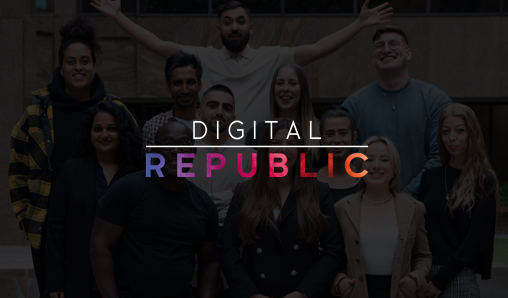
How Cloud Data Could Transform Your Business?

With most organisations failing to approach cloud data as a key business resource, artificial intelligence (AI) could hold the key to insights that can drive transformation.
Organisations are increasingly adopting cloud-based applications to reduce costs and give them the scalability and agility to transform into an increasingly fast-evolving business landscape. Through doing so they are generating a large amount of data that could provide actionable insights, but few are implementing data analytics strategically.
The most innovative companies in the world, including Facebook, Amazon, Netflix and Google, are not only underpinned by the cloud, but recognise that their whole business model is based upon data. Indeed, Netflix said in 2016 that its cloud-based recommendation engine, powered by user data, is worth more than $1 billion annually.
How data analytics has already transformed business
Closer to home, Ocado has disrupted the saturated supermarket industry by placing cloud data and automation at the core of its proposition, and even productised much of its technology stack for sale to other retailers. Meanwhile, Heathrow Airport has adopted cloud and business intelligence services from Microsoft to optimise movement of the 200,000 people who pass through its terminals each day.
“The explosion in big data has been powered by the availability of unprecedented levels of computing power, alongside the democratising force of public cloud making this power available to a wide range of organisations,” says Craig Lodzinski, chief technologist for developing technologies at Softcat. “With quantum computing on the horizon, the ability to process huge amounts of data in a short period of time presents possibilities that have previously been impossible.”
In a study by data analytics firm SAS, 72 per cent of organisations said data analytics helps them generate valuable insight and six in ten said their analytics resources make them more innovative. While these findings sound positive, by delving deeper it becomes clear they’re not getting the most from their analytics investments.
Still a long way to go before data analytics become business-as-usual
In the same piece of research, only four in ten companies could say data is core to their business strategy and a third reported it was only used for tactical projects. Despite acknowledged value among professionals, with two in three saying they can measure value from deploying data analytics, there is still a way to go before businesses are using analytics strategically across the whole organisation.
“There is a strong desire to boost competitive insight and efficiency using analytics, but it is not being fed into core business strategies: a missed opportunity,” says Laurie Miles, director of analytics at SAS UK and Ireland. “With AInow top of mind for many, it’s more important than ever to have a powerful, streamlined analytics capability.”
Moving from recognising the value of data analytics to approaching it as a key business resource requires responsibility and ownership at the very top of a company. According to Deloitte, this is only the case in half of organisations. Insights from data programmes are often only seen by individual functions and viewed as an IT project. The real value lies in cross-functional collaboration and identifying end-to-end insights.

Things to consider when building a data analytics strategy
A common mistake is approaching data analytics as a project with a beginning and an end, rather than a journey to break up into iterative, actionable elements. Frequently muted as the best approach is “failing fast”, where value is delivered incrementally and agile teams can swiftly change the methods adopted to reach the defined objectives should the programme be underperforming at any stage along the way.
“It’s important for businesses to keep in mind the key challenges they’d like to address with analytics and build outcome-based solutions to directly address this,” says Andy Gauld, partner at Deloitte. “Businesses all too often go into projects without first pinpointing what they are looking to achieve and how to measure success.”
Automation technologies such as AI and machine-learning are now central to the next phase in advancing the value of data analytics from cloud-based applications. By sifting through masses of data, AI-based systems are having a huge impact on extracting commercial benefit from information and helping to generate offers and services that are more likely to be bought or consumed by an organisation’s customers.
Through the application of pragmatic AI that brings together historical and real-time cloud data, user journeys can be streamlined, sales opportunities triggered automatically and customer satisfaction enhanced. AI makes data available for use in decisions made on behalf of customers across all their preferred channels of interaction.
Real value of digital transformation comes when cloud data is at heart of strategy
“Analytics and AI will underpin pretty much any decision that needs to be made, using large datasets as the input to those decisions, for both customer interactions and employee support,” says John Everhard, chief technology officer for Europe at software firm Pegasystems. “The combination of the machine guiding decisions and people adding the human touch will evolve into a seamless partnership that provides the best products and services to customers, based on their needs, attitudes and experiences.”
Thibaut Ceyrolle, vice president, Europe, the Middle East and Africa, at Snowflake Computing, adds: “Organisations that capitalise on machine-learning will also be better positioned to extrapolate the variety of data sources available and glue it together to serve as an interconnected data network. As this technology advances, it will foster more collaboration and partnerships.”
Originally posted by Ben Rossi.
If you found this article interesting, you might enjoy this blog too.
Follow us on our LinkedIn and Twitter to stay up to date with the latest news in the digital data-driven ecosystem
Digital analytics, optimisation, data science or programmatic expert, and looking for a job?
Check out our latest live vacancies here
Digital agency looking to expand your team with top-tier talent?
Send us your jobs here
Get in contact with us!


